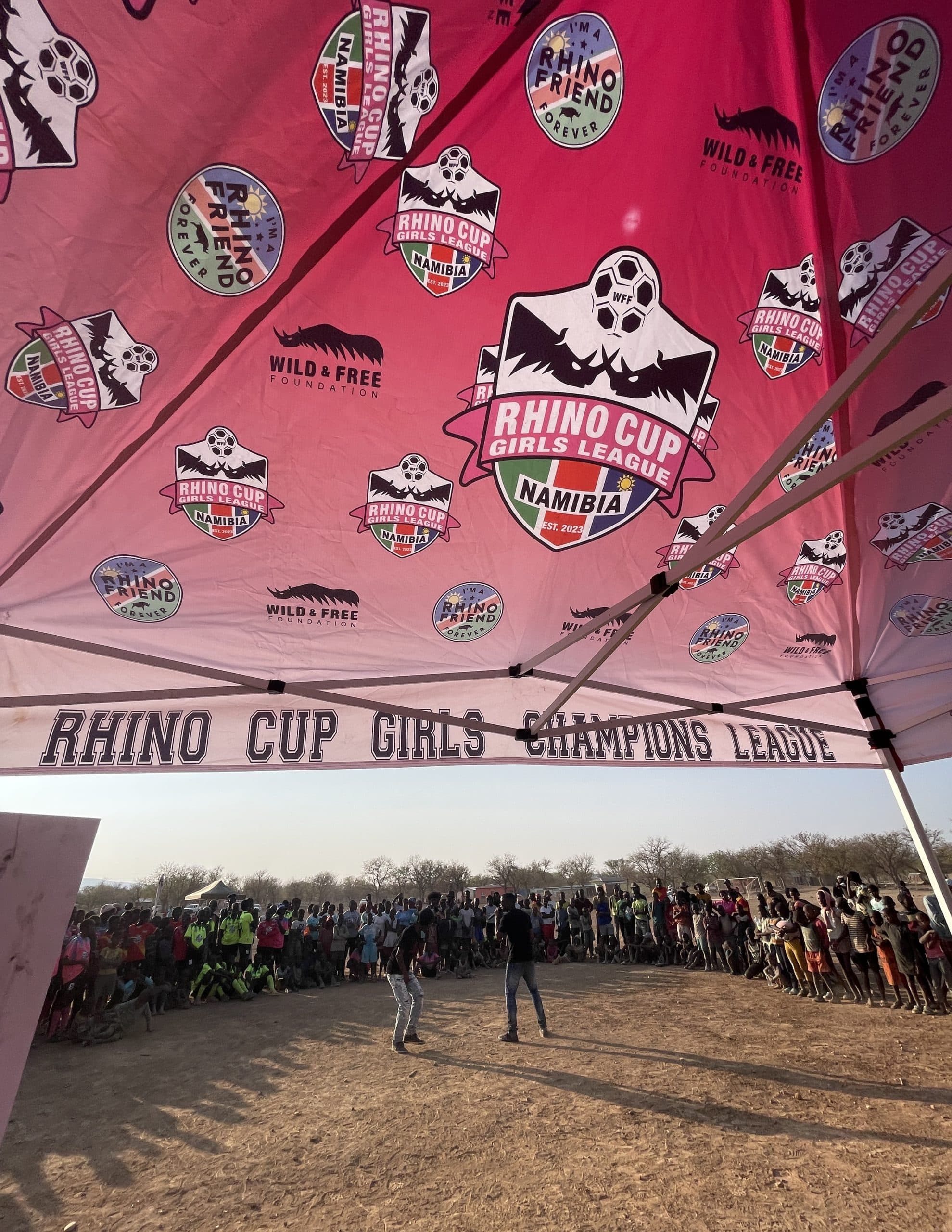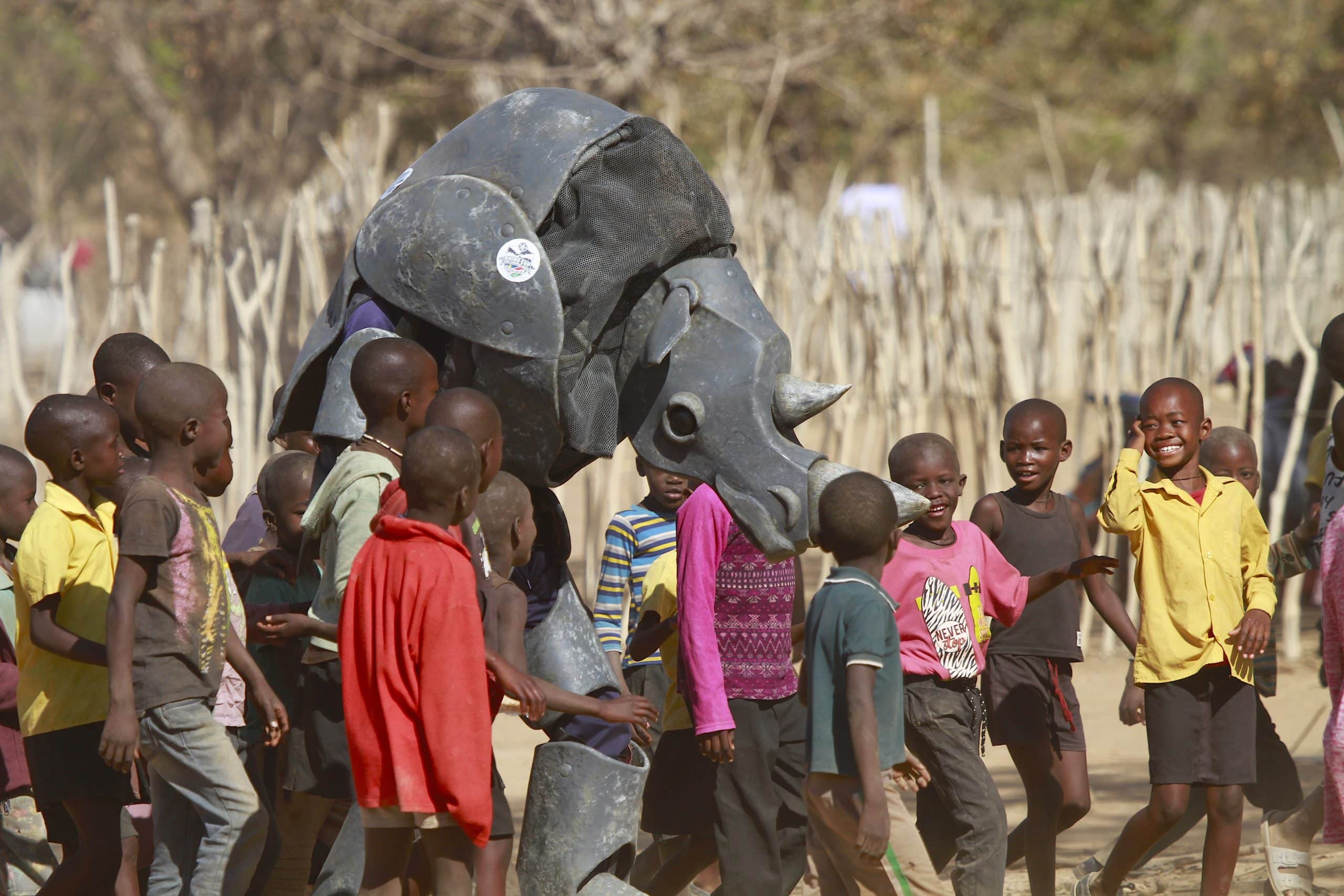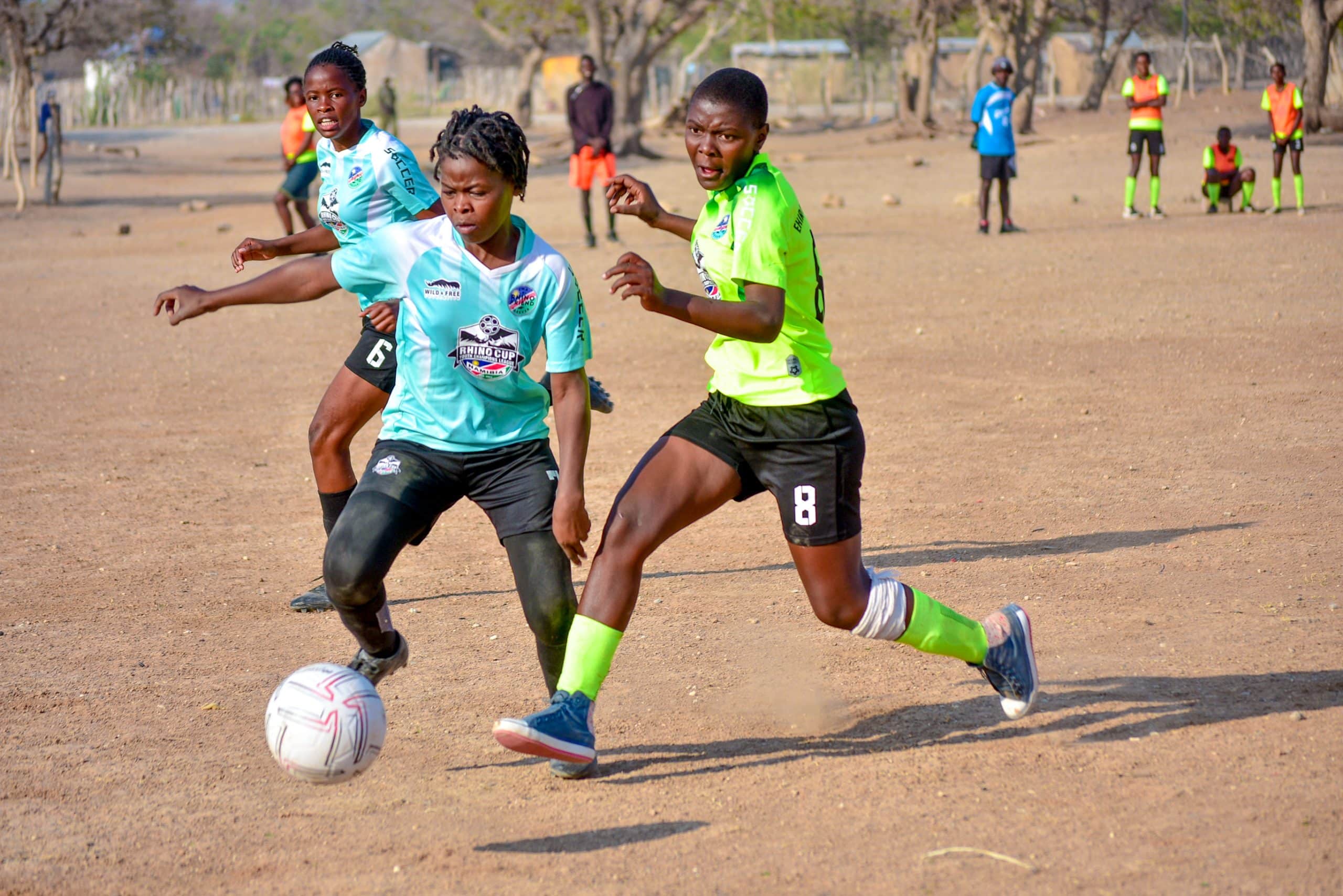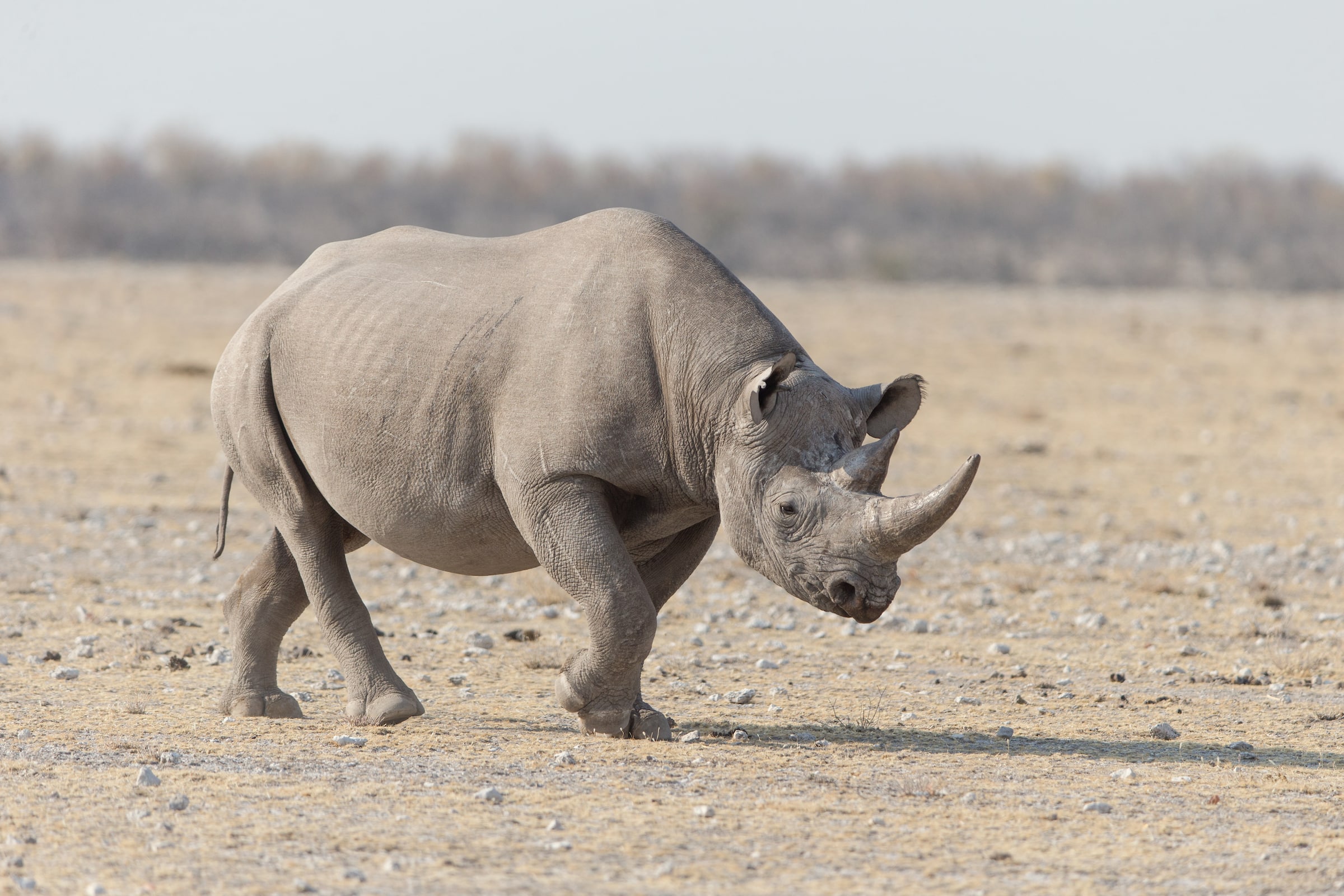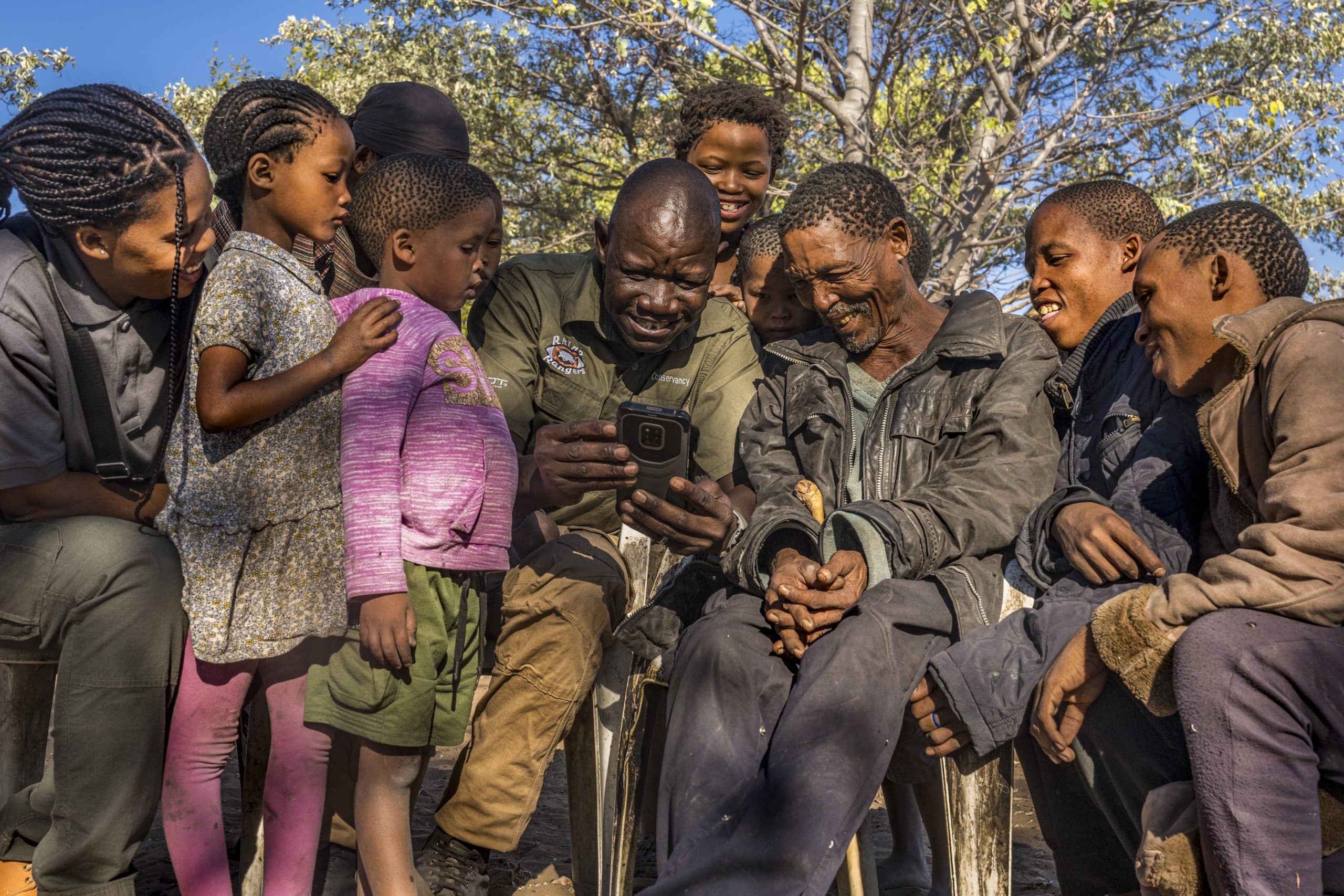Every day, at least one rhino is poached in Africa for its horn. Wildlife criminals often target marginalized young people as new recruits in this illegal activity, perpetuating a harmful trade that threatens rhinos. In northwest Namibia, conservation and social development are inextricably linked, as the success of saving wildlife relies upon improving livelihoods among local communities, including those adjacent to rhino populations. The Rhino Recovery Fund (RRF) has supported Save the Rhino Trust (SRT) in Namibia in a successful social endeavor aimed at boosting conservation engagement among young people—a football league.
Football (or soccer here in the United States) is perhaps the most popular sport on the planet. It is played in nearly every country, including Namibia, and SRT recognized the value of engaging young people through the promotion of this beloved sport. Namibia has a world-renowned conservation model, where local communities have legal rights to manage and benefit from the wildlife on their lands. This motivates people to adopt sustainable conservation practices because it ultimately enhances their own quality of life as much as it protects wildlife.
To encourage young people in Namibia to avoid falling into the unsavory circles of wildlife criminals and boost their own sense of pride, gratitude, and compassion toward rhinos, SRT joined forces with the Wild and Free Foundation (WFF). The WFF founded the Rhino Cup Champions League (RCCL) in Mozambique in 2016, and in 2021, SRT wanted their help to establish RCCL Namibia. This amateur football league provides young people with constructive, structured football activities as an alternative to negative activities like poaching and dropping out of school, all while promoting rhino conservation and fostering discipline, personal growth, and community appreciation for wildlife. Through football, the RCCL creates a positive and lasting impact among young people in communities surrounding wildlife reserves and national parks, showing them the tangible benefits of caring for and protecting rhinos.
In 2024, the RRF issued a grant to SRT to support the RCCL’s third season in Namibia’s Kunene region, as well as to develop a new league north of Etosha National Park, where the world’s largest population of black rhinos is found. Thanks to this support, SRT was able to increase fundraising efforts and secure league sponsorship from corporate donors, produce new RCCL jerseys, create the league’s first handbook, and participate in the first anti-poaching workshop with Ministry of Environment, Forestry, and Tourism officials in Etosha to boost the park’s security for rhinos.
“Save the Rhino Trust in Namibia have been at the speartip of community-based rhino conservation for decades, and have recently expanded their influence into the buffer zones and more populated areas to make rhinos relevant to the broader community surrounding rhino conservancies,” said Markus Hofmeyr, Director of the Rhino Recovery Fund. “What has been remarkable is the incredible adoption of the football initiative and the behavioural conduct that is associated with the league. Investing in partners like SRT speaks clearly to the strategic pillar we want to achieve with the RRF—the social relevance of rhinos to society. I am excited about where this initiative is going and commend SRT for the excellent work that they are doing, both in rhino conservancies with their Rhino Ranger project and in the surrounding communities.”
Given the popularity and importance of football in Africa, it is hard to imagine a more fitting mechanism to connect young people in rural communities to rhino conservation. By boosting the social relevance of rhinos among the next generation of rhino stewards, SRT, the WFF, and the RRF are making significant strides toward improving the situation for young people and rhinos in Namibia.


